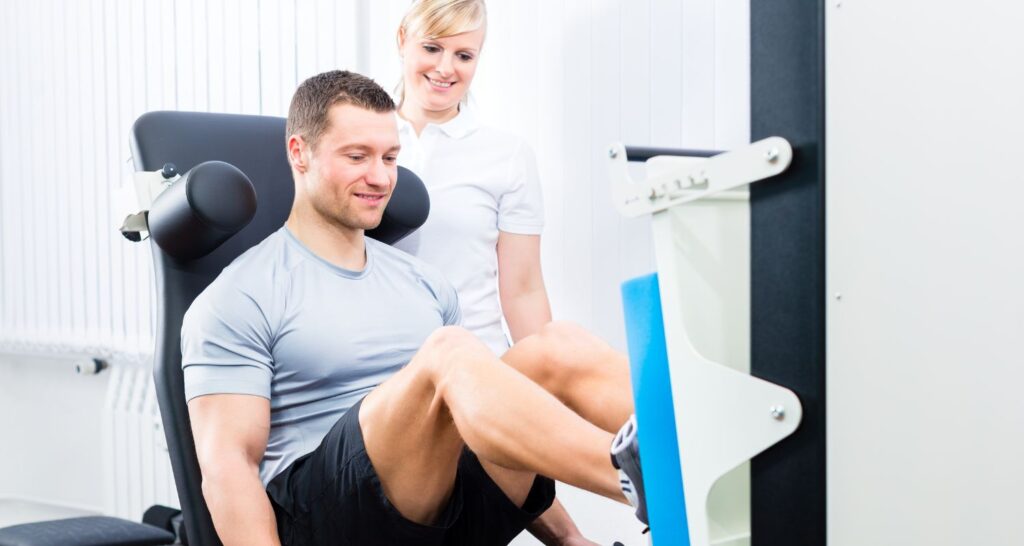Many athletes’ careers have been terminated or interrupted by sports-related injuries for several games or seasons. Participating in sports, physical activities, training, and competitions often result in injuries. Most athletes are injured due to improper training tactics, inadequate fitness or improper warm-up. Injuries can also be caused by fatigue, excessive exercise and dehydration.
According to physicians, sports injuries occur primarily to ankles and knees. Overuse injuries can also arise when you repetitively apply pressure and stress to healthy tissues. An example of an overuse injury is a stress fracture, which usually develops in the fibula and tibia. Clinical experience has shown correlations between incorrect warm-up before exercise, past injuries, weariness and severe muscle strain injuries.
Types of Sports Injuries
In sports, failure to warm up increases the probability of sustaining sprains, rips, fractured bones and bruising. Physiotherapy aids with the treatment of sports injuries such as muscular strains. This happens when muscles are overstretched, causing them to rip. A pulled muscle will cause discomfort, weakness, edema, and difficulty in using the affected muscle.
Many athletes also suffer from ruptured anterior cruciate ligaments, which keep the knee joint together and give stability. This injury happens when you abruptly reverse course, land in the incorrect direction or stop abruptly. The medial collateral ligament, which joins the femur to the tibia, can also be ripped. This ligament is placed on the inside aspect of the knee, and it is harmed when a mistake is made or the knee is struck. Other injuries include shin fractures, stress fractures, tennis elbow, ankle sprains and lower back discomfort.
Physiotherapy and Sports Injuries
Physiotherapy is a specialized field concerned with physical health and mobility issues. Numerous individuals need to be made aware of the significance of physiotherapy treatment for sports-related ailments. There are sports physiotherapists in sports organizations, private practices, and clinics. Physiotherapy has the following effects on sports injuries:
Prevention
Physiotherapy prevents sports injuries. Minor injuries can sideline you. Knowing when to practice and compete is half the battle.
Physiotherapy for sports injuries comprises a muscle-examining training regimen. The specialist can measure coordination, mobility, stability and muscular range. Risk evaluation ensures joint and muscle health. Identifying and examining possible injuries is the greatest method to avoid sports injuries.
Recovery
 Physiotherapy helps prevent and recover from sports injuries. Injuries are prevalent in organized sports, workouts and contests. This helps heal injured joints and muscles. It reduces pain and prevents permanent and repeated harm.
Physiotherapy helps prevent and recover from sports injuries. Injuries are prevalent in organized sports, workouts and contests. This helps heal injured joints and muscles. It reduces pain and prevents permanent and repeated harm.
Physiotherapy helps athletes recover by employing range-of-motion exercises to reduce muscle and joint stiffness. Injured parts are exercised. Whether you do passive or vigorous workouts depends on your injury. Active range of motion exercises are performed without professional assistance. The physiotherapist performs passive range-of-motion exercises while the patient does nothing.
Enhancing Performance
Physiotherapists assist athletes with increasing their physical capability. Physiotherapy can assist athletes in preparing for demanding sports. Physiotherapy for sports injuries improves your performance.
Injury-free athletes perform better, and physiotherapists prevent injury in healthy sportsmen. They strengthen muscles to guarantee proper mobility and activity. Sports performance could be improved by preventing physical injury.
Advice
Physiotherapy for sports injuries encompasses a variety of treatments and preventative measures. Physiotherapists treat the complete body, not just the injury. Specialists recommend frequent exercise and weight control to boost health.
The specialist also recommends exercises to lessen discomfort and injury risk. If you have lower back pain, the physiotherapist will recommend excellent posture, stretching and lifting.
To boost your performance, visit an expert. Call Fraserlife Willowbrook Physio and Rehab at (778) 278-4755 or visit us online at fraserlifephysio.ca to learn more.

